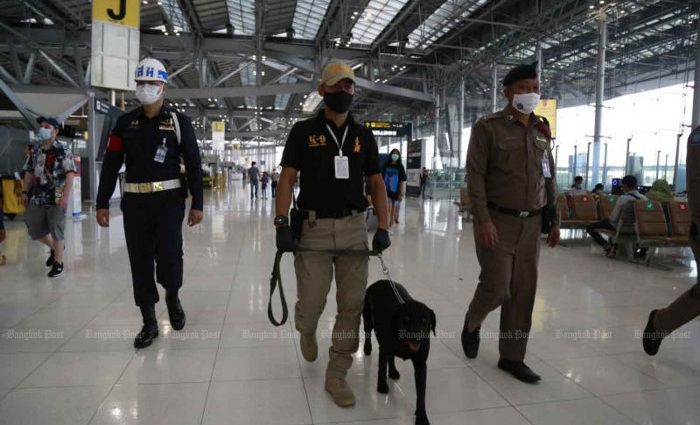
The Customs Department has adopted the use of sniffer dogs to detect narcotic drugs hidden in imported and exported goods, saying its practices are now fully upgraded to meet international standards.
The department on Monday held a ceremony marking the beginning of the construction of the Thai Customs Canine Training Centre in Samut Prakan’s Bang Phli district. The ceremony was also attended by international customs attaches.
The technologies currently used to detect drugs and other illegal products hidden in imported and exported goods still have their limitations, while the use of sniffer dogs in customs handling is believed to help transcend these limitations, said Patchara Anuntasilpa, director-general of the department.
Countries that use sniffer dogs in their customs handling and have formal dog training centres include the US, Japan, South Korea and Australia, he said. Before setting up the Samut Prakan centre, the department consulted these countries as to how to effectively use dogs to aid in detecting illegal products, he said.
South Korea, for instance, offered two Labrador Retrievers to the department upon learning it was setting up its own training centre, he said, adding that the dogs were handed over on April 27.
Currently, two customs officers are attending a training programme on working with sniffer dogs at an institution certified by the KCS Detector Dog Training Centre in Incheon, he said.
The construction of the dog training facility, a one storey-building plus an outdoor dog-training ground situated on a two-rai plot of land, is expected to be completed around the end of next month and be fully operational in August, he said.
The importance of using sniffer dogs in customs handling was highlighted at a recent World Customs Organisation forum, he said.

